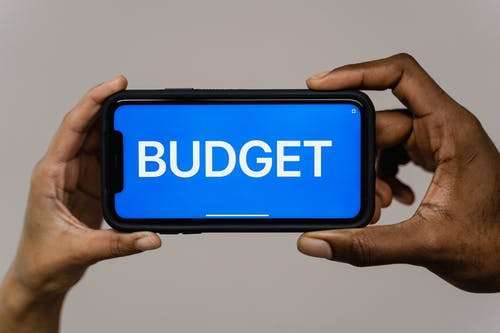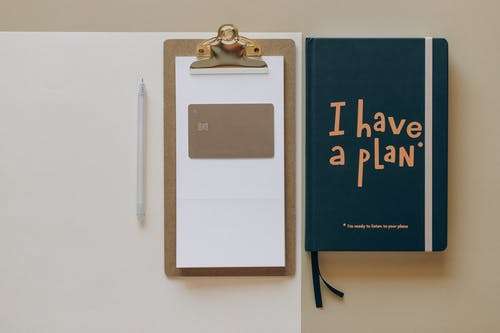
Creating a budget is one of the most important steps you can take to take control of your finances successfully. A budget is basically a plan for how you will spend your money over a certain period of time, usually on a monthly basis.
What are the benefits of a budget?
One of the most important benefits of budgeting is that it helps you to understand your spending habits. When you create a budget, you are forced to look at all of your expenses and see where your money is going. This can help you to identify areas where you are spending too much money and areas where you can cut back.
For example, you might discover that you are spending a lot of money on eating out or on entertainment and that by cutting back on these areas, you can free up money to save or to use for other things.
Another benefit of budgeting is that it helps you to plan for the future. When you have a budget, you know how much money you have coming in and going out each month, and you can use this information to plan for things like saving for a car or a house, paying off debt, or saving for retirement. By having a plan in place, you can make sure that you are on track to achieve your financial goals.
In setting a budget, you make sure that you are living within your means and saving enough money to achieve your financial goals.

How do I create a budget effectively?
If you are new to budgeting, this piece is perfect for you. Creating a budget is not difficult, but it does take some effort and a good deal of financial discipline to pull off. There are some important things you must do if you want to use a budget successfully and stick to it.
Step 1 – Have a clear picture of your money situation
The first step is to gather all of your financial information, including your income, expenses, and bills. You can use this information to create a list of all of your income and expenses. This would be easy to do if you’ve been tracking your expenses. If you haven’t yet, do so for the next 1 – 2 months as it is very important as a guide to successfully pull off the next steps.
Step 2 – State your financial goals
Another key aspect of budgeting is to set goals for yourself. This can include short-term goals like paying off debt, funding your education and child care, or long-term goals like saving for a big purchase like a house.
Once you have set your goals, you can then create a plan for how you will reach them that is factored into your budget. Doing this can expose areas where you can cut back on spending to accommodate the higher priorities, and it could expose the need to increase your income!

Step 3 – Create a budget plan
The next thing you need to do is create a plan for how you will spend your money based on your priorities. This can include setting aside money for savings (very important), an emergency fund (you need this), paying off debt (also important), and budgeting for fixed expenses and needs like entertainment.
A popularly used budgeting philosophy is the 50/30/20 rule. Here, 50% of your earnings caters to your needs and essentials, 30% goes to your wants/non-essentials, and the remaining 20% is for your savings and investments. Whatever ratio you choose to go by, just make sure it works for your unique situation, not someone else’s.
It is very important to include a savings plan in your budget! Even if it’s just a small amount each month, it’s important to start saving for emergencies, your short to medium-term goals, retirement, or any other future expenses. These savings should be separate from the money you’re using to pay off debt. Automating your savings by setting up automatic transfers to your savings account especially if you have that tendency to spend impulsively is a great way to ensure that you’re consistently saving.
One important aspect of budgeting is to set a realistic budget. It’s important to set a budget that you can actually stick to. If your budget is too restrictive, you may find it hard to stick to it, and if it’s too loose, you may not be able to achieve your financial goals. It’s important to find a balance between the two.
Step 4 – Track your spending
A very key aspect of budgeting is tracking your spending. This helps you to see where your money is actually going and can help you put a limit to spending when the money allocated to a particular category has been used up for the month.
It also helps you to identify areas where you may be able to cut back spending in your budget overall. Whether by documenting the ins and outs in a notepad, spreadsheet, or budgeting app, it is important to do this tracking.

Step 5 – Review the budget regularly
Finally, it’s important to review your budget regularly (monthly for starters) and make adjustments as needed. Life is unpredictable, and things can change quickly. The money you make, as well as your expenses and priorities, would change over time. So re-evaluate and adjust your budget to accommodate these.
If you lose your job, for example, you may need to make significant downward reviews to your budget. By going over said budget regularly, you can make sure that you are still on track to reach your financial goals and make adjustments as needed.
P.S. – Even though you are admonished to hold yourself accountable and stick to your budget, also give yourself some grace, most importantly if you’re just getting started with this. If you fall off the wagon, don’t become frustrated and quit. Get back on the horse and do what you must.
To make things clearer and equip you some more, here are some of the frequently asked questions about using a budget.

How can I budget with a fluctuating income?
To budget when you have a fluctuating income such as can happen if you’re say a small business owner or freelancer, it’s important to make budget plans based on your lowest expected income. Then have a plan in place for handling unexpected increases in income. It’s also necessary to set up an emergency fund to help cover urgent expenses and bills during months when your income is lower.
How can I budget for irregular expenses?
To budget for expenses that don’t occur on a regular basis, such as car repairs or home maintenance, you can set aside money each month for these expenses, or create a separate account for them if they won’t be covered by your emergency fund. It’s vital that you plan ahead and include them in your budget.
How do I stick to my budget?
To stick to your budget, it’s important to first of all set a realistic budget. One that isn’t so rigid and restrictive. Other things of importance are having a good system to track your spending and make adjustments as needed after regular reviews of the budget.
How can I save money while budgeting?
To save money while budgeting, you must become really disciplined with paying yourself first. Include the savings plan in your budget and automate your savings by setting up automatic transfers to your savings account. Also, cut back on unnecessary expenses and look for ways to increase your income.
Now that we know the benefits of having a budget and how to create one successfully, go ahead to use one for yourself guided by the approach above. I trust it would help you achieve financial success.
Kindly remember that for this to work, you need to put in the work. Just so your plans don’t end up lost in the land of good intentions, have a close and trusted person be your accountability partner on this journey. Or just reach out to me as your coach. As the icing on this budget cake, ensure to avoid these common budgeting mistakes.
